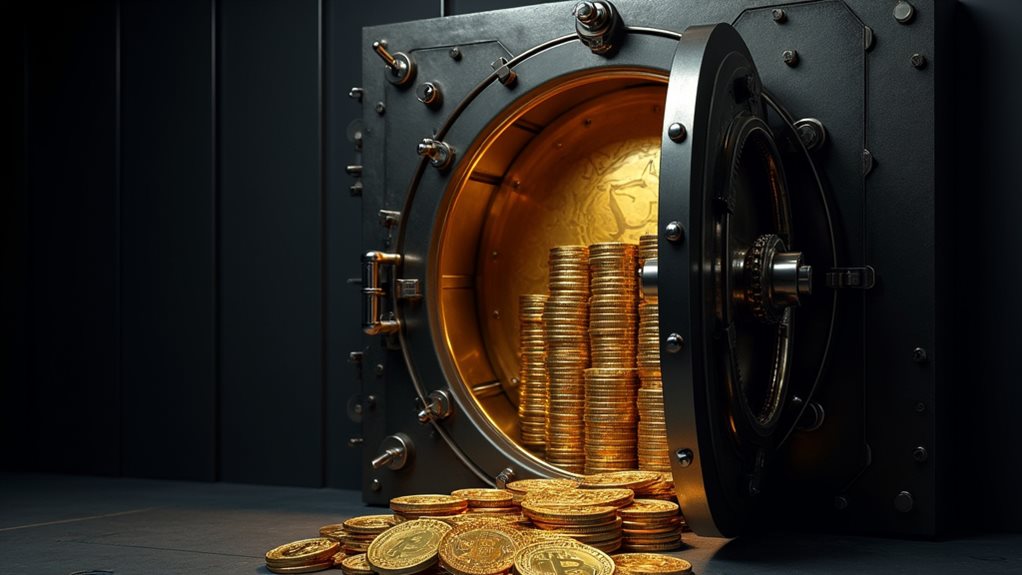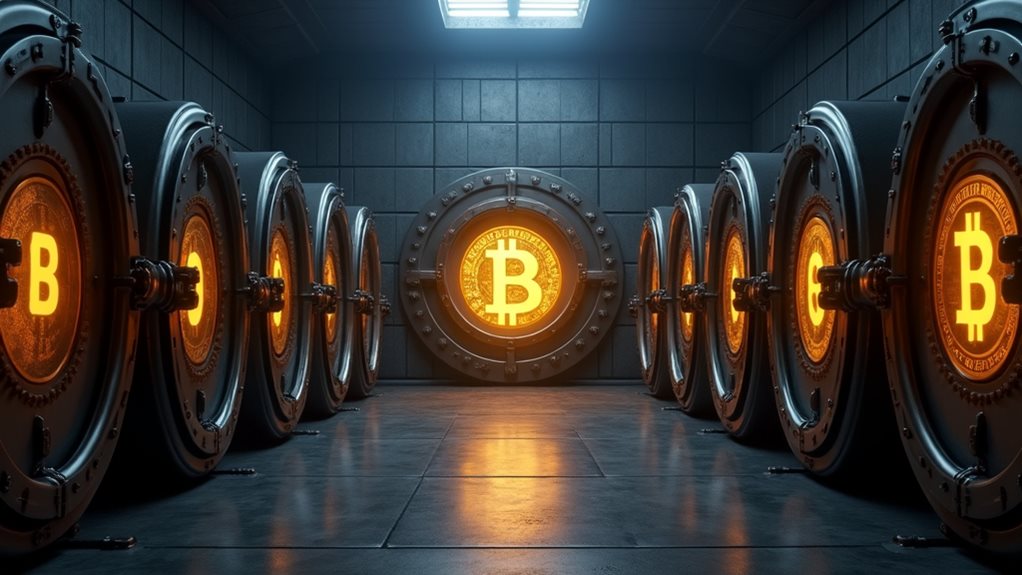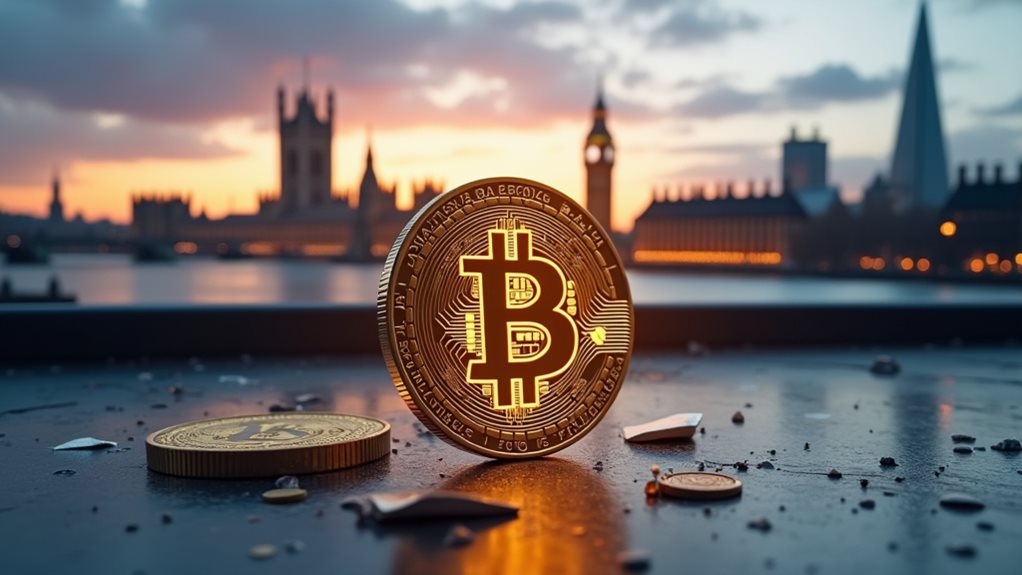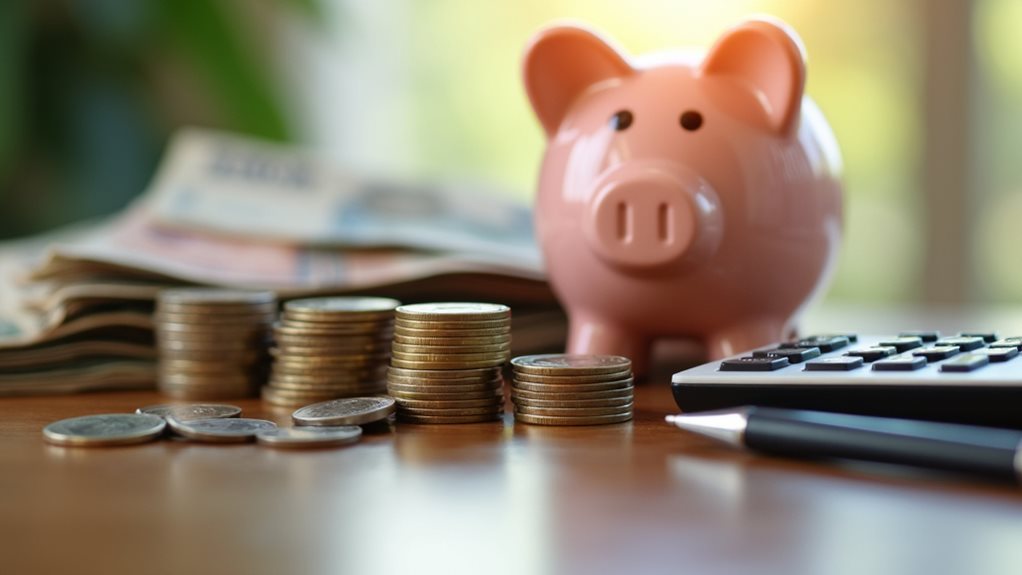Bitcoin’s wealthiest investors are fundamentally playing the ultimate game of financial chicken. They’re convinced Bitcoin’s fixed supply of 21 million coins makes it digital gold on steroids. Major holders like Satoshi Nakamoto, the Winklevoss twins, and Michael Saylor are betting big on long-term scarcity value. They view selling as giving up generational wealth in an inflationary world. These whales believe hodling beats trading every single time, and the numbers behind their strategy might surprise you.

The cryptocurrency world has its royalty, and they’re sitting on digital fortunes that would make traditional billionaires sweat. These Bitcoin whales aren’t just holding — they’re hoarding like digital dragons protecting their treasure.
Satoshi Nakamoto leads the pack with roughly 1 million BTC, about 5% of the total supply. The mysterious creator’s wallets haven’t moved since mining began. Every Bitcoin enthusiast watches those addresses like hawks, knowing any activity could send markets into chaos. But Satoshi stays silent, letting that fortune gather digital dust.
Satoshi’s sleeping giant — 1 million untouched Bitcoin that could shake the entire crypto world with a single transaction.
The Winklevoss twins turned their Facebook settlement drama into Bitcoin gold, collectively owning 70,000 BTC. Tim Draper sits pretty with 29,500 BTC, while Michael Saylor personally holds 17,732 BTC and convinced his company MicroStrategy to buy nearly 600,000 more. These guys aren’t selling. They’re accumulating. The fixed supply cap of Bitcoin makes it an increasingly attractive store of value for these wealthy investors.
Corporate America joined the party hard. Tesla grabbed over 11,000 BTC, though Elon’s had his selling moments. Marathon Digital Holdings, Galaxy Digital, and Coinbase Global stuffed their treasuries with Bitcoin. Block.one owns 164,000 BTC — that’s 0.7% of the entire supply sitting in one company’s vault. Private companies collectively control 1.95% of the total Bitcoin supply, showing how concentrated institutional adoption has become.
Even governments got involved. The U.S. holds about 207,189 BTC, making Uncle Sam one of the biggest Bitcoin whales around. Most came from seized assets, but they’re not exactly rushing to auction it off. Ukraine maintains roughly 46,351 BTC primarily from donations received during their conflict with Russia.
Exchange wallets tell another story. Binance and Robinhood control massive Bitcoin reserves, but recent trends show people pulling coins off exchanges. Smart money knows: not your keys, not your coins.
Here’s the kicker — institutional investors are pouring hundreds of millions into Bitcoin ETFs. BlackRock’s leading the charge, with spot ETF inflows hitting $217 million over just three days in July 2025.
Why aren’t these whales selling? Simple. They believe Bitcoin’s digital scarcity beats traditional assets. With only 21 million coins ever possible, they’re betting on long-term value appreciation. Selling means giving up potentially generational wealth.
These Bitcoin billionaires understand something fundamental: in a world printing endless fiat money, fixed supply wins. They’re not saving millions by selling — they’re saving millions by never selling at all.









